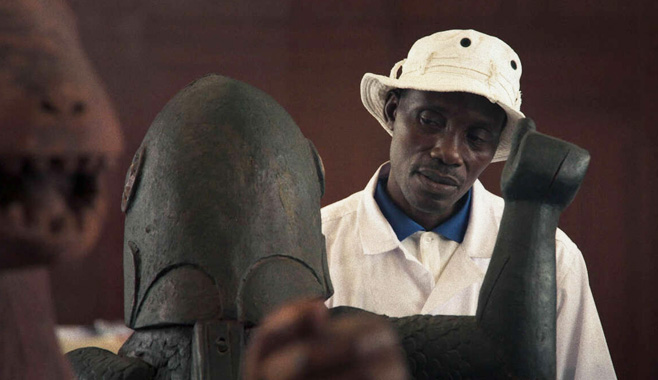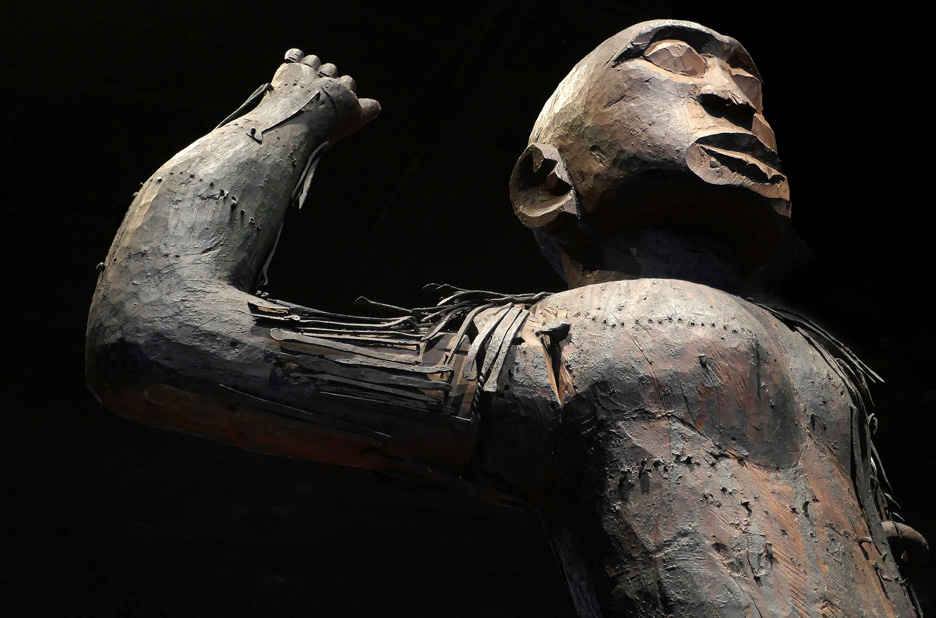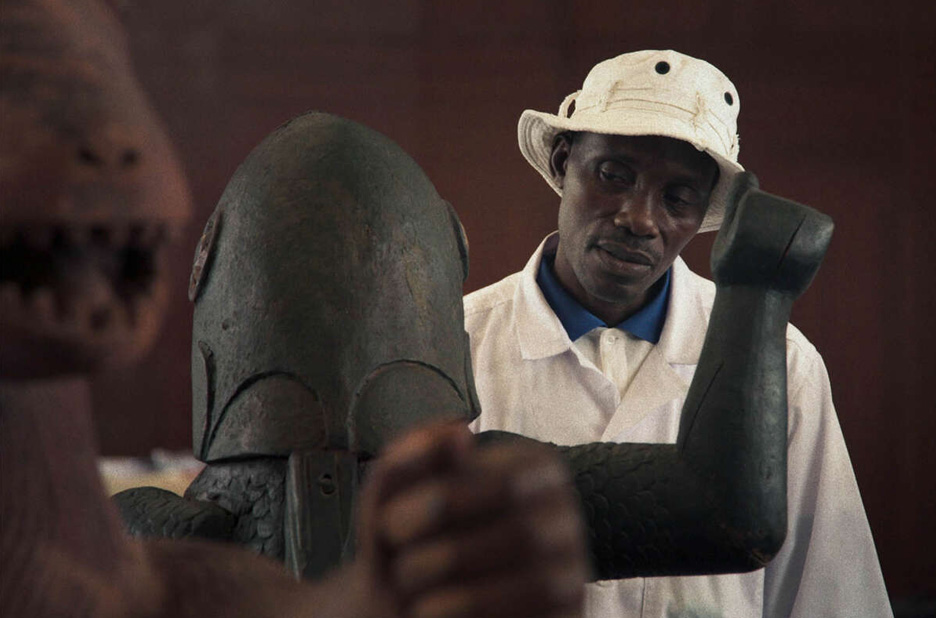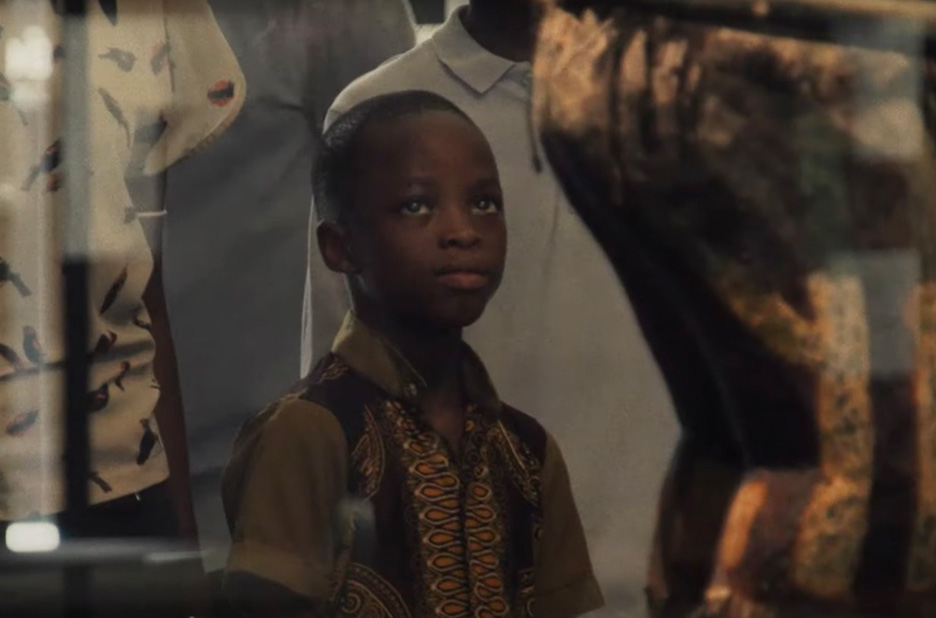Film
Dahomey (2024)
Mati Diop
4/5
African treasures return home
This short feature in documentary style follows the repatriation of 26 Kingdom of Dahomey artifacts from Paris back to Cotonou, Benin. In November 2021 the treasures were transported from the Musée de Quai Branly in Paris to Palais de la Marina, the official residence of the President of Benin, in fulfilment of Emmanuel Macron’s pledge from 2017. These 26 works are a very small percentage of the treasures looted by the colonialists which are still in Western museums and collections, nevertheless their return is still a meaningful landmark of the beginning of the long overdue process of restitution.


At a beautiful pace, accompanied by an interesting score, we experience the majestic nature of the objects as they are carefully and slowly packed, secured, transported and unpacked again. One of the life-size sculptures representing King Ghézo awakes and in an eerie supernatural voice comments on the disturbance of the journey. In a powerful segue we stay with the statue in silence as it is enclosed in a crate and nailed in, and in the darkness we hear the movement of the crate wheels taking it further on its voyage home.
Upon the arrival of the artifacts, it is moving hearing and seeing the joy and appreciation of the Beninese from different walks of life. We see young construction workers respectfully trying to sneak a peak at the treasures, also another museum worker singing to the artifacts in an act of tenderness. At the exhibition in Cotonou the lit faces of the young and old take in the magnificence of the artworks with awe. The strength of the film for me is in this representation of the African gaze on its own heritage. It is by no means an unambiguous gaze, it incorporates joy as well as questioning and reappraisal.

There is very little spoken in the first meditative part of the film except for the king’s speaking spirit, but in the second half we witness a lively and interesting discussion of the young Beninese on the meaning of these artifacts. The conversation is staged, but still shows a variety of arguments from the Beninese point of view stirred by the unexpected return of the stolen items.
The director Mati Diop skilfully questions the complexities of heritage and identity in the context of African cultures and post-colonialism. The film is a piece of activism trying to assert the dignity of the Beninese in the way they receive the returned objects, dispelling the damaging myths that the countries of origin would not know how to appreciate or care for them. Diop also suggests a different significance these artifacts have for the Africans, away from the Western museum culture, as for some they are part of their religious and spiritual identity.
It seems that there is a general consensus of the public opinion now in the West that looted artworks should be returned to their rightful owners, and the process seems under way, albeit with resistance and delays from the institutions. I look forward to the day when one will be able to visit the fully reassembled collections in their countries of origin, curated and guarded by the representatives of these cultures. This will happen in time, I’m sure, and then the responsibility for the guardianship will be in the right hands and the perception of the collections will also alter as a result.

In the QA after the screening, as Diop talks about her film, you feel her deep anger about colonialism which she has been able to successfully sublimate in Dahomey. Her perspective is that of a person who straddles the African and European cultures and as such this film appears to have been mainly made for Europeans to make them feel good and just, and allay their fears about giving back. Wide acclaim at various Western film events, including winning the Golden Bear at the 2024 Berlin Film Festival, in addition to showing the appreciation for the director’s creation, also testifies to the discomfort and embarrassment of the West in relation to its colonial history. But perhaps in the footage of the discussions between the Beninese students we could also glimpse the director’s desire to foster more of these open discussions which due to self-censorship rarely take place in Benin. Diop appears to want to create a model of behaviour for both Europeans and Africans, a very ambitious and idealistic goal indeed.